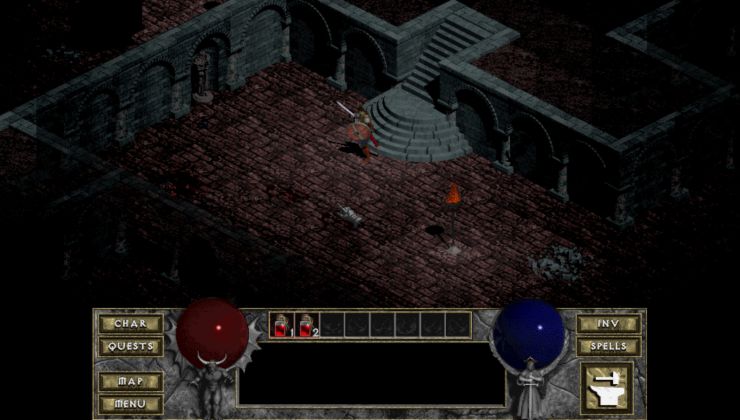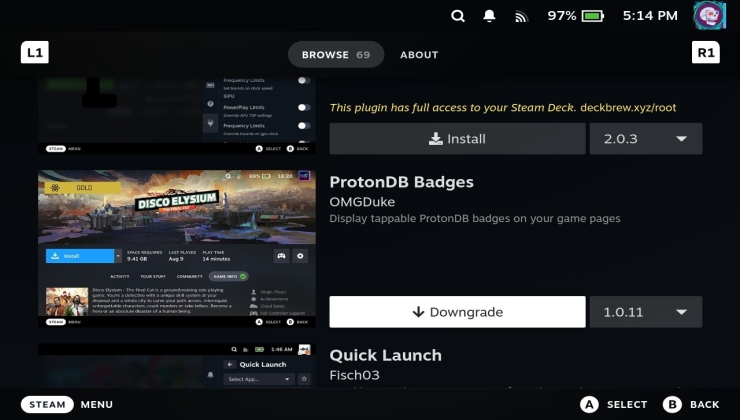Subscriptions, they're everywhere and more seem to appear all the time. So, what IF Valve were to announce their own Steam Game Pass to give you access to a great many games?
Let's be realistic here though - Valve doesn't need one. Steam is and will be for a long time to come, a money printing machine because of the user share they have across PC platforms (Linux, macOS and Windows). However, Valve do have competition increasing all the time. Not just from the Epic Games Store but thinking more on the likes of the Xbox Game Pass Ultimate - which includes a ton of games along with upcoming game streaming support too. That has proven extremely popular for Microsoft and services like that absolutely will pull people away from buying more games on Steam. Why would you, after all, if you can get 100+ (and growing) AA/AAA and indie games often close to release in a single subscription?
It's something I've been thinking on for a long time, and I've probably mentioned it in some previous articles. I speculated a little back when the subscription and rewards features for Steam leaked out. Although that turned into the points shop and allowing the likes of EA Play and the Crusader Kings II - Expansion Subscription. So now Valve allows other developers to use subscriptions but what about Valve directly though? Are they going to bring out their own, should they do it and would you actually use it?
Many questions! Some of which I posed to our Twitter followers (#1, #2) with the results being quite surprising. A small sample with the majority thinking Valve aren't doing one but 50/50 for people who want it versus not wanting it. I actually expected the question of people wanting it or not to swing quite hard one way which it clearly didn't.
For gamers, it might work out to be more cost effective to have a subscription. Thinking on the cost of these subscription services, it can work out at the price of 1-2 AAA games a year to gain access to tons. You would have to play quite a few of them to actually make it worth it - but a lot of people would probably forget about that part. Even if you're only interested in a few of the games, it could still work out as reasonably good value. For a store like Steam, compared to streaming services, being able to choose between outright buying and subscribing to have access gives the best of both worlds (compared with the likes of Stadia, where it's streaming-only and if it's gone, it's gone even if you "buy" it).
The drawback for developers though is monies. It all depends on the revenue split of each subscription, likely based on how much time is put into each title which could end up being worse for smaller developers who often struggle on Steam as it is. There's a lot of different angles like that to think on. What sort of levels would the subscription have? It could be interesting with different selections like Indie Gems, AAA classics and so on. Could even be an additional bit of marketing for developers as people might spots games from the lists they want to actually buy from it. Also, as a reminder, you don't actually own what you buy on Steam, as per the Steam Subscriber Agreement you get a license to play it.
A Steam Game Pass would probably be quite popular if Valve actually did it though, but will they?
Over to you in the comments: what are you thoughts on if Valve actually did a Steam Game Pass system?
Basically a great way to support the games you actually play.
Edit: I also like to add that publishers don't have to be worried about their revenue. First of all, I wouldn't think of it as something mandatory, more like gamepass. Publishers would have the option to withhold their games for a few months right after release, or make it available for subscribers for a few months to invite new players and drive sales when the game drops back out of the sub model
Last edited by CSharp on 23 May 2021 at 8:16 pm UTC
I like Steam a lot but I also have all my games here, so even if I wanted to, I couldn't just up and leave without basically throwing away a load of money.
I like this point here. If I don't own the game anyway, why should I pretend to own it. If steam shuts down my games are lost regardless
I can play A LOT of big games on my Windows 10 machine, and if I like a game, I buy it on sale...
There’s already a subscription service on Steam and it’s a great value. EA Play gives you access to about 50-60 games and costs about $30 per year. It also gives you a 10% discount on new game purchases and 10 hours of free trial gameplay on most new games. It’s a great service. It would seem that Valve’s model is to allow other publishers to provide their own subscriptions.That is mentioned briefly in the article, as is the CKII sub. The talking point is about Valve doing one.
The Content and Services are licensed, not sold
https://store.steampowered.com/subscriber_agreement/
Oh and on the subscription versus buying to own argument. The Steam agreement is clear you don't own Steam games.
The Content and Services are licensed, not sold
https://store.steampowered.com/subscriber_agreement/
They might write those things, but I doubt it would hold up if it was ever legally tested. At least under European consumer protection laws.
Also, as a reminder, you don't actually own what you buy on Steam, as per the Steam Subscriber Agreement you get a license to play it.
@Liam legally, you never own a game, even if you buy a hard copy. The same goes for music and movies. You have a license to listen/watch/play them, but you don't own them as you don't have any rights on the intellectual property.
But I think you wanted to point out that owning a copy of a game is different than buying a game on Steam, as Steam games can have DRM which prevent you from playing offline.
It could help chip away at the Microsoft Store and keep it at bay on PC. Anything that can help fight the Microsoft app store is good in my mind simply because it's UWP and thus is incompatible with Wine/Proton, whereas other game launchers and store fronts are Win32 based and generally run.
Last edited by Xaero_Vincent on 24 May 2021 at 12:33 am UTC
Valve could only leverage Proton for Linux not macOS and kernel anti-cheat games would need to be excluded if they aren't native ports.
It seems like deciding on this in a fair manner could get complicated pretty fast.
Changing of license in the middle of it...
So in the wee hours of the morning, I'd woken up and couldn't go back to sleep, so figured I'd look around on Amazon Prime for a movie to watch. Landed upon Saturday the 14th (figured it was amazing to watch at 3am). It finished up, and all of a sudden said that it was going to load up the Highlander series. I was like 'well okay then, I didn't click on a single thing, it just said 'video would resume' and then started Highlander...
Well turns out it'd automatically started IMDBtv... with Ads... needless to say I was freaking PISSED! I didn't ask for this garbage. I had to stop watching it because every so often it'd force me to watch a 45s ad. No.. Just no. So I did end up starting to watch the Highlander movie...
Off topic, I have to say, why is it that they picked Sean Connery, who very much has a Scottish accent, to play a person from Spain, when they had Christopher Lambert play the Highlander, who couldn't do a Scottish accent to save his life...
Anyhow, I'm pissed that I subscribe to Amazon Prime Video, multiple channels on it (Starz, Showtime, HBO) yet they screw me and force me to watch IMDBtv with ads??? And there is no option to opt out of that either...
There are enough subscriptions out there, and most of them end up being garbage. I'd prefer to just outright purchase my games, and I've bought a LOT on Steam.
I know my disinterest in media subscriptions of any sort (Netflix, Spotify, Humble Monthly etc.) is probably considered weird, but despite the obvious convenience, I don't think they're worth the downsides for us or the majority of artists and developers. These services are a goldmine for big retailers and publishers, obviously, and superficially they seem like a good deal, but I'm not sure that they're good for us in the long run.
Last edited by tuubi on 24 May 2021 at 9:14 am UTC
It all depends on the contracts with the given platforms, obviously - but since those tend to be very hush-hush...
Unless leaked like Epic's, of course.
I think the subscription model may be attractive to new people to Steam or to people who want to play the newest and hottest AAA titles (given that the subscription includes them). Though, in case of people like me, who have a huge backlog (my Steam library has over 1000 games) and don't really care about the newest hit titles, it doesn't seem all that interesting.
For me Humble Choice is the best option. I get plenty of games every month and, if I don't like a game or I already own it, I can just send a gift link to one of my friends.
My biggest fear with subscription services is that I'm not sure if it is actually viable for smaller developers.Exactly. Ask smaller-name musicians how much money they make on spotify or other streaming services.
Streaming only benefits the platforms and the big names. Everyone else loses.
My only use cases for streaming are trying before buying (the refund model already allows that, but best would be proper demos) and playing AAA games without buying a desktop PC. Given that I anyway don't have the time for AAA anymore, and usually prefer shorter indie games or games without defined playtime like Warband, I'd probably end up not using it at all.
Also, I'm worried about time limits for game licenses. Right now we buy the license, so it cannot be revoked freely (though it may become worthless on the event that Steam shuts down), while with streaming the licenses will come and go. No interest to play a he without a guarantee that it will be available until I'm finished, or if I want to replay.
dont get me wrong, they may be an great cost-benefit for consumers, but the cost for it is: companies deciding for us what we gonna play and who will be funded.
that is especially bad if consumers get so used to this model that they refuse to use any other (as many people refuse to watch something if it isnt on netflix, convenience and low price at all costs)
now think about it: the gaming industry as a whole move 100 billions of dollars a year, if we have 1 billion of gamers world wide that means each player spend an average of 100 dollars/year, if we start to having to spend less money in order to get more games, that will mean that this overal value (100 bilions/year) is reducing instead of increasing, this may sound good if you take into account that big companies earn ~10x more than they spend, that could mean that consumers will pay less and their margin for profit will shrink, but do you REALLY think they are the ones who will be affected by that? of course not, the small ones will.
and gamers will get so used to pay a little ammount of money to get acess to almost everything that they will start to refuse paying for stuff that arent on those services because "screw greed developers".














 How to set, change and reset your SteamOS / Steam Deck desktop sudo password
How to set, change and reset your SteamOS / Steam Deck desktop sudo password How to set up Decky Loader on Steam Deck / SteamOS for easy plugins
How to set up Decky Loader on Steam Deck / SteamOS for easy plugins
See more from me